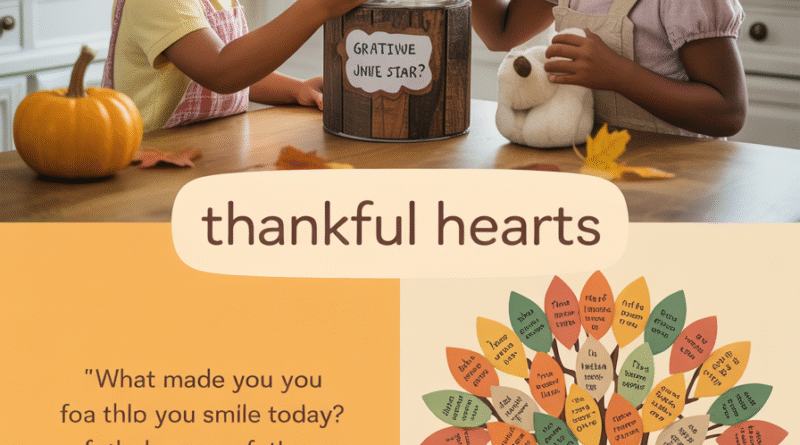How to Teach Young Children About Showing Gratitude
Gratitude is more than saying “thank you.” It’s about helping children notice and appreciate the good in their lives—people who help them, special moments, and even simple joys like a warm meal or sunny day. Teaching gratitude early builds empathy, mindfulness, and happiness, setting the stage for lifelong appreciation.
Why Gratitude Matters
- Promotes positive thinking and resilience
- Builds empathy and kindness
- Strengthens relationships
- Encourages generosity
- Improves emotional well-being
Option 1: Start a Daily Gratitude Ritual
Activity Idea:
At a consistent time each day (bedtime or mealtime), ask:
- “What’s one good thing that happened today?”
- “What made you smile today?”
Write or draw responses in a simple Gratitude Journal or hang them on a “Thankful Tree” or wall.
What Kids Learn:
- How to reflect on their day
- Emotional awareness and appreciation
- That good moments deserve to be noticed
Tool Suggestion:
Create a “Gratitude Jar” to collect notes or drawings of happy moments and read them together weekly.
Option 2: Use Stories and Play to Practice Thankfulness
Activity Idea:
Read books about thankful characters or acts of kindness.
Use pretend play to practice saying thank you—“Your doll made you soup—how do you show you’re thankful?”
Write or draw thank-you notes for friends, teachers, or helpers.
What Kids Learn:
- How to express gratitude socially
- Emotional vocabulary like “grateful,” “appreciated,” and “thankful”
- Thoughtfulness and connection
Book Suggestion:
Thanks a Lot by Raffi or Bear Says Thanks by Karma Wilson — both great introductions to gratitude for young children.
Other Ways to Encourage Gratitude
- Model it daily: “I’m so thankful you helped me clean up today.”
- Celebrate kindness: “Wasn’t it nice when Grandma brought us cookies?”
- Talk about the little things: Sunshine, hugs, playtime—these can all be “thankful moments”
- Make gratitude visible: Bulletin boards, journals, or even fridge magnets
- Practice giving back: Donate gently used toys or bake cookies for a neighbor
Final Thoughts
Gratitude turns ordinary moments into meaningful ones. When young children learn to appreciate and express thanks, they gain a deeper connection to themselves and others. Through simple rituals, play, and daily conversation, you’re planting seeds of joy that will grow with them for life.
